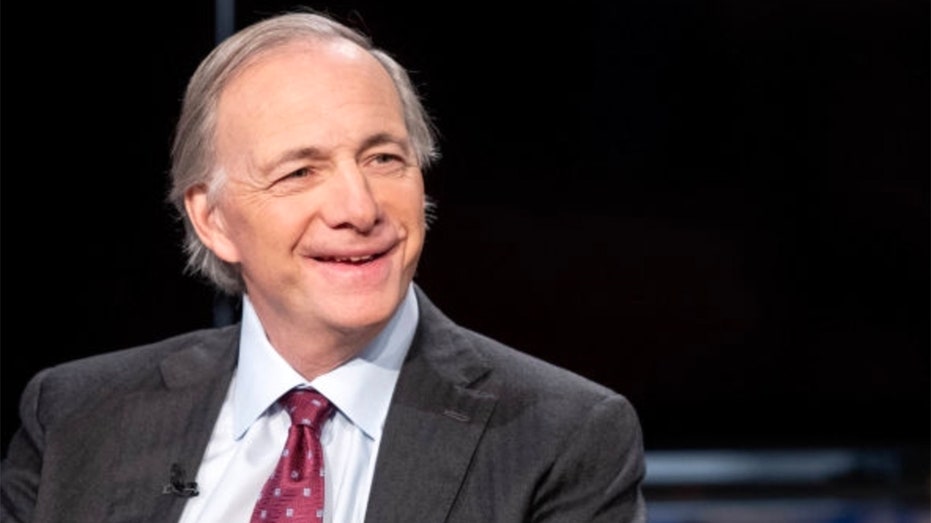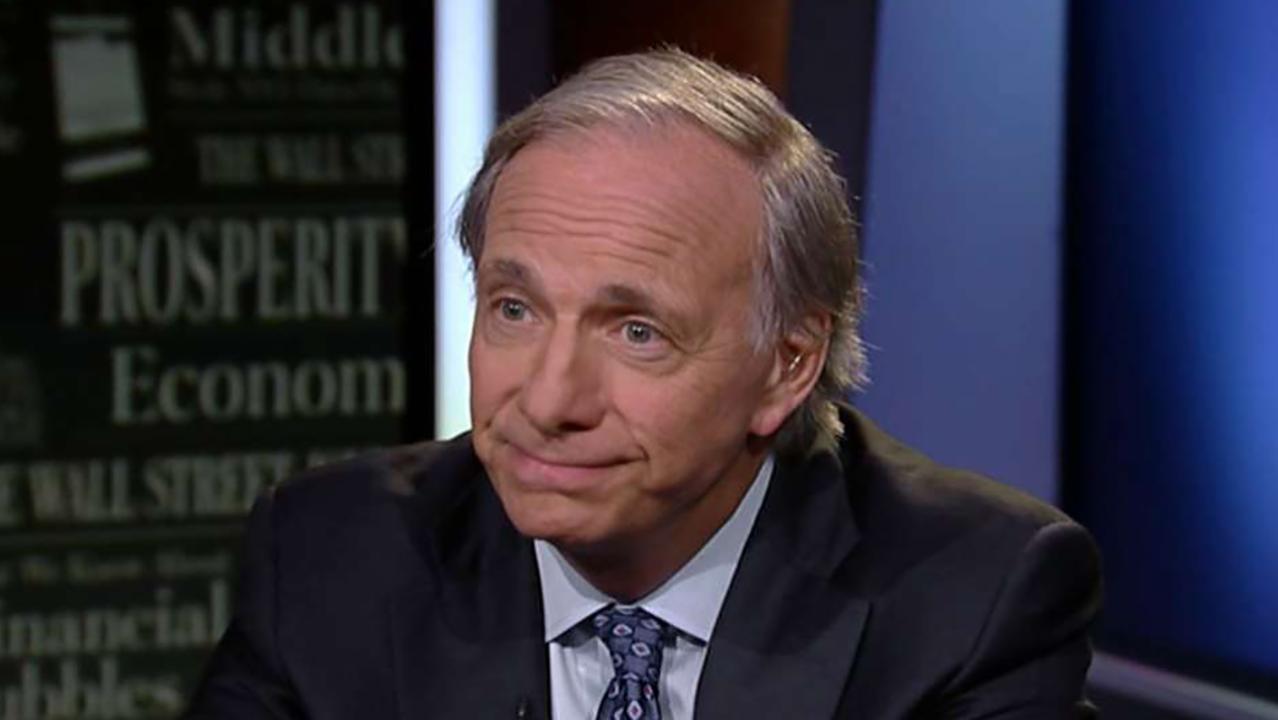Coronavirus hits Bridgewater Associates' performance
World’s largest hedge-fund says coronavirus hit the firm “at the worst possible moment”
Bridgewater Associates LP, the world’s largest hedge-fund firm, took a big hit to its funds as it got caught out by the market impact of the coronavirus.
Bridgewater’s All-Weather funds tumbled as much as 14% this year through Monday, according to a letter founder Ray Dalio sent Wednesday to investors that was reviewed by The Wall Street Journal. A leveraged version of the firm’s flagship macro fund, Pure Alpha, is down 21%.
Mr. Dalio said the coronavirus hit the firm “at the worst possible moment” because it had a long tilt in its positions, meaning it was positioned for market gains. In total, Mr. Dalio said eight Bridgewater funds were in the red. A Bridgewater spokesman declined to comment.
BILL ACKMAN SAYS CORONAVIRUS SHOULD PUSH TRUMP TO SHUT DOWN COUNTRY
Bridgewater’s deep losses follow a rough patch of performance for the firm, where executives have argued about how best to handle the slip.
Bridgewater and a few others might be the outliers: Many other hedge fund-firms have emerged with only some scarring from the recent broad market rout.

Bridgewater’s All-Weather funds tumbled as much as 14% this year through Monday, according to a letter founder Ray Dalio sent Wednesday
Investors, counterparties and hedge-fund executives say the sector has proven resilient as markets careened in recent weeks. Some funds that weren’t clobbered too badly or which churned out positive returns were well-positioned ahead of the market crash. They were prepared for, or had predicted, greater turmoil to come, industry participants say.
For hedge funds, the relative lack of damage amid the market turmoil is welcome relief. They trailed the S&P 500 during each year of the 11-year bull run in U.S. stocks that came to an end last week.
OIL PRICES COULD FALL BELOW ZERO: ANALYST
A Journal analysis of HSBC Holdings PLC data shows that 59% of funds that reported performance through early March were down in 2020, with many funds reporting data from between March 4 and March 11. But most funds were down by a low single-digit percentage, while the S&P 500 is down more than 24% to date. The HFRX Global Hedge Fund Index was down 7.2% this year as of Monday, according to researcher HFR.
Investors expect hedge funds to provide returns uncorrelated with the broader market in times of market stress, even if the numbers aren’t positive. Many investors are mollified as long as funds beat the S&P 500, particularly given the industry’s struggle to produce outsize investment returns, or even keep up with broad stock market indexes over recent years.
Among the top-performing funds so far this year are AlphaQuest Original, run by Quest Partners LLC, which was up 17.4% as of March 13; Caxton Global Investments, run by Caxton Associates, up 12% as of March 6; and Horseman Global Fund, run by Horseman Capital Management, which was up 12.2% as of March 4. Horseman managed more than $300 million at the end of February.
Prashant Kolluri, president of Quest Partners, a New York-based firm with $1.5 billion in assets under management, says the strategy for his fund is predicated on taking more risk when markets are more volatile.
During the last week of February, the fund flipped very quickly from long to short exposure in stocks, Mr. Kolluri said, combined with “very aggressive long bond positions” and gold positions. The fund was short crude oil as well, he said, ahead of the collapse of crude last Monday.
The market volatility at the beginning of last week was one of the fund’s most profitable periods ever, he said. The fund this month has made money from short crude oil positions, short equity positions, long bond positions and short dollar/yen and euro/yen positions, he said.
The dollar share class of BH Macro, European hedge-fund giant Brevan Howard’s fund, is up 14% in March to the 13th and 18.57% so far this year. The fund trades on macroeconomic developments and is designed to cushion portfolios in times of upheaval, said a person familiar with the firm’s strategy.
Diego Parilla, manager of the $277 million Quadriga Igneo fund at Quadriga Asset Managers in Madrid, bets against assets that are overvalued and buys significantly underpriced financial insurance through options markets. His fund, which is up 5% in March and 23% in the year to date, invests half of its money in precious metals, mainly gold, one-quarter to one-third in Treasurys and the rest in options.
The fund will buy puts—bets that prices will fall—on risky, inflated assets like equities, credit and emerging-markets debt, for example, and buy call options—bets that prices will rise—on gold, Treasurys and the dollar.
One recent example that led to profits before the current market maelstrom involved combining bets that gold would rise while the euro fell and eurozone interest rates falling and volatility rising. Right now Mr. Parilla likes positions that involve gold rising versus the Chinese yuan.
Some funds have felt more pain than others.
Lansdowne Partners’ Princay Fund is down more than 26% as of March 6, according to the HSBC data. A spokesperson for Lansdowne, one of the world’s largest hedge funds, declined to comment.
CLICK HERE TO GET FOX BUSINESS ON THE GO
Two funds run by Rowayton, Conn.-based Graham Capital Management were down 13.24% and 11.9% as of March 10. Graham, which had $15 billion in assets under management as of Jan. 1, didn’t return requests for comment.
Thomas Reeves, head of research at London-based Murano, a company that connects institutional investors with fund managers, said money managers are looking for strategies that can take advantage of market dislocations, such as arbitrage and so-called relative value funds. Investors also are looking for distressed-asset managers that can scout out deals amid the crisis, he said.
Investors are now looking for value funds instead of growth, a change that came in the span of just one week, he added.




















